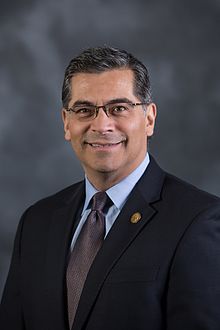Sacramento, CA…California Attorney General Xavier Becerra, co-leading with New York a coalition of 10 attorneys general, today filed a lawsuit to block the proposed merger of telecommunications companies T-Mobile and Sprint. The companies – two of only four national wireless providers – offer wireless phone services to over 13 million California consumers. The lawsuit challenges the acquisition of Sprint by T-Mobile because it would lead to higher prices and fewer choices for consumers, particularly low-income subscribers of the companies’ services.

“Although T-Mobile and Sprint may be promising faster, better, and cheaper service with this merger, the evidence weighs against it,” said Attorney General Becerra. “This merger would hurt the most vulnerable Californians and result in a compressed market with fewer choices and higher prices. Today, along with New York and eight other partner states, we’ve filed a lawsuit to block this merger and protect the residents of our state.”
“When it comes to corporate power, bigger isn’t always better,” said Attorney General James. “The T-Mobile and Sprint merger would not only cause irreparable harm to mobile subscribers nationwide by cutting access to affordable, reliable wireless service for millions of Americans, but would particularly affect lower-income and minority communities here in New York and in urban areas across the country. That’s why we are going to court to stop this merger and protect our consumers, because this is exactly the sort of consumer-harming, job-killing megamerger our antitrust laws were designed to prevent.”
The current market includes four national network providers: T-Mobile, Sprint, Verizon and AT&T. Sprint and T-Mobile’s proposed union would consolidate these four provider options into three, by combining T-Mobile and Sprint’s market shares. In certain areas of California, the market share of the merged firm would be over 50 percent. Moreover, Sprint and T-Mobile have high market shares among low-income populations. They would become the dominant network provider for prepaid mobile services, which are available without a credit check. Any merger would significantly hurt these communities by diminishing competition and increasing costs to consumers.
This is T-Mobile’s third merger attempt. Each previous attempt has been blocked or abandoned due to opposition from the government based on the same concerns laid out in the lawsuit filed today. In this attempt, T-Mobile and Sprint argue that the merger would allow them to more quickly roll out a next-generation 5G network and more broadly increase service to rural customers. However the companies are already planning to roll out 5G networks, and T-Mobile is already planning increased rural coverage, even without the merger.


